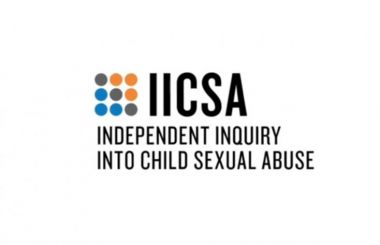Inquiry identifies 'significant barriers' to reporting abuse in religious settings

The Independent Inquiry into Child Sexual Abuse (IICSA) has identified "egregious failings" by religious organisations in the areas of child protection and safeguarding.
In its latest report, IICSA said there was "no doubt that the sexual abuse of children takes place in a broad range of religious settings".
In some of the religious organisations it reviewed, the inquiry uncovered "significant barriers" to the effective reporting of child sexual abuse allegations.
Among these were "victim-blaming", the abuse of power by religious leaders, and a reluctance to discuss matters relating to sex.
"The concept of forgiveness can be misused, both to put pressure on victims not to report their abuse and to justify failures by religious leaders to take appropriate action where allegations have been made," it added.
The inquiry also identified failures in responding to allegations of abuse, with one church minister telling the mother of a 12-year-old girl abused by a volunteer that the abuser was "valued" and must be considered "innocent until proven guilty". It later became known that the abuser had lost a previous job with the police following charges of unlawful sexual intercourse with a minor.
The inquiry said that "very few" of the religious organisations looked at were found to have arrangements in place for professional counselling or therapy for victims.
While some religious organisations had "effective systems" in place for responding to allegations, others had procedures that "are ill-defined or are not communicated and followed".
"What marks religious organisations out from other institutions is the explicit purpose they have in teaching right from wrong; the moral turpitude of any failing by them in the prevention of, or response to, child sexual abuse is therefore heightened," the report said.
IICSA examined 38 religious organisations with a presence in England and Wales, including the Baptist Union of Great Britain, Methodist Church, Jehovah's Witnesses, and those belonging to the Sikh, Jewish and Muslim faiths.
The Roman Catholic Church and Church of England have already been examined in previous reports.
Responding to the report, the Methodist Church expressed regret that there are "many areas where religious organisations are still failing their members".
"And we are truly sorry for where this happens in our churches," it said.
It added, "We note the report's mention of a general lack of support for victims of abuse among religious organisations.
"We will continue to review and improve our support to victims and survivors and we apologise where this has not happened as it should have done.
"There can never be any excuse for failings in safeguarding and it is the responsibility of everyone connected with the Methodist Church to uphold the highest standards in order to protect children and vulnerable people."
The Baptist Union of Great Britain, which was commended for having effective child safeguarding policies in place, said it was working to "provide more targeted support" for victims.
Rev Lynn Green, General Secretary of the Baptist Union, said "We will continue to work together at regional and national level to support safeguarding teams in our churches.
"We commit ourselves to protect those who are at risk of abuse, and to listen to and support those who have experienced abuse.
"We believe that this vital safeguarding work is part of the underpinning of our mission and outreach and an expression of God's love for all people."











